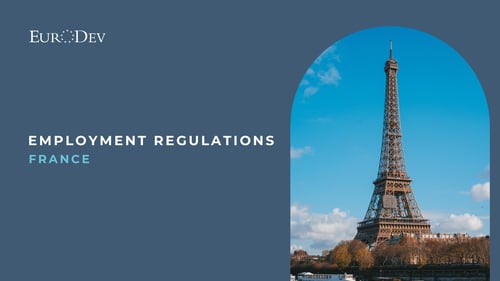How to Deal With the Great Resignation Trend
The job market was full of uncertainties since the strike of COVID 19. It started with millions of people losing their jobs, but then the tables turned. Employees started moving on from their current postings. The Great resignation was a huge trend in 2021, but it doesn’t seem to stop in 2022 either. Employers are trying to find solutions for this issue. But what can we expect from the Great Resignation 2022? We’ve explained it all in this blog.
4.3 million people quit their jobs in January
11.3 million new job openings
These numbers are painting the picture of the current labor market. On one hand, employers are trying to stop, or at least slow down the Great Resignation trends. But employees are those who are in the position to demand.
What is the Great Resignation?
After the COVID-19 pandemics, there have been a recording number of people leaving their jobs. Because of that, companies had to find creative solutions to navigate between the ripple effects of the pandemic and how to find and retain talent. The idea of the Great Resignation was proposed by Professor Anthony Klotz of Texas A&M University who predicted that a great number of employees will leave their jobs as life returns to “normal”. We’ve all been shaken by the new reality and after it has been over, people started re-evaluating their careers.
Resignation rates are the highest among:
-
Mid-career employees
-
Technology and healthcare industries
What is causing The Great Resignation?
Even though the Great Resignation started even before the pandemic, its impact was very influential on the work environment in 2021.
Due to lack of flexibility, it’s no wonder that the service industries, such as retail, hospitality, food service, etc, are facing the highest number of quit rates. These are the industries that require a specific place and time, with a lack of flexibility. Businesses that can be independent of the two have more chances to survive the Great Resignation crisis.
Burnout syndrome was tackled even before the COVID-19 pandemic. But after it, the biggest exhaustion was in the health system, medical staff who gave up due to fatigue and working conditions.
How to fight against the Great Resignation?
For businesses, it is crucial to identify the scope of the retention problem and act in a data-driven way. Some of the factors that might be driving higher resignation rates are compensation, the time needed for an employee’s promotion, pay increases, tenure, performance, learning opportunities, etc. Workers’ well-being is at the center of attention, and if employers want to maximize their retention, the focus should be on segmenting them into categories to better understand how work experience differs across distinct employee populations. This way, companies can identify the highest risk of resigning and take appropriate action to prevent it.
Once the root causes are identified, employers should develop tailored retention programs that will correct the specific issue that employees are struggling with the most.
The culture of individualized working is one of the most important takeaways after the Great Resignation trend. Employees are asking for flexibility at working times, working places, and workplace setups. On the other hand, self-development and self-responsibility are a must.
The question that arises - has the Great Resignation reached Europe already?
Europe is not resistant to the Great Resignation trends either. Employees in Europe are reacting in a similar way as the USA workers and resignation rates are climbing. However, employers in the UK, Germany, the Netherlands, Belgium, and Ireland have found a way to slow it down - they have increased pay and are offering better benefits. The main reasons why quit rates are going up in Europe are the loss of remote work, the realization they don’t want to work for less than they think they are worth, or because they are burned out. The new market is pushing European leading companies to adjust their approach to talent acquisition and retention to maintain a competitive advantage.
Because of the Great Resignation in Europe, employers are not only increasing salaries. Considering that the average time needed to fill in a position increased, employers are trying to find new ways to attract talent. In Belgia, employers are offering private health insurance, Dutch companies are reducing work hours, while Irish companies are offering a four-day workweek. In Germany, employers are offering free food, more team events, and improving the parking part of employees' packages.
Learn more about fair compensation packages in Europe.
Post-pandemic workplace
So, how will the Great Resignation affect the post-covid workplace? The business world is preparing for the post-pandemic world, employers are creating different strategies to retain talent. Therefore, many companies announced that their employees never have to return to the office to work full time. Companies are moving away from a one-size-fits-all approach toward the individual organization of work. Many businesses will probably allow their workforce to work fully remote most of the time, and another part to come to the office only 1-2 days a week.
The Great Resignation will change the office buildings as well. They will switch towards cultural touchstones and meeting places for recruiting, meeting clients, and holding learning and development sessions.
Leadership style will change towards self-leadership. After all, companies will need someone who will know how to select the right talents and socialize them in the right way.
We can’t forget technology development that will affect the post-covid workplace as well.
With younger generations of employees, the workplace atmosphere will shift from people having 6 jobs during their lifetime to one person doing 6 different jobs at the same time. Not literally, but the new generation of employees will be more skilled in fulfilling different roles at the same time.
More about HR trends for 2022.
3 Key trends that will dominate work in 2022
What can we learn from the Great Resignation of 2022? Here are the main trends that will shape the workspace in 2022.
- The Great Resignation 2022 will slow down
- The flexible workspace will be the norm, not the exception/benefit
- Remove jobs will be more competitive
- Remote work is here to stay
If you haven’t already, this is the moment to start thinking about HR outsourcing so you can cut expenses and pursue talent from all around Europe. Getting the chance to recruit workers from all over the world and deliver quality results will push your business way above the competition. EuroDev is the partner that can assist with this.
About EuroDev
EuroDev, established in 1996 with an office in The Netherlands, has a single, defined purpose to help mid-sized North American companies expand their business in Europe. We have created a proven, successful business development model and since our founding, have partnered with over 500 companies to help them define and meet their European business goals. Services provided include Sales Outsourcing, HR Outsourcing, and Digital Marketing.
Another relevant article: Employer of Record in Europe
Category
Related articles
-

Essential Guide to French Employment Regulations
22 March 2024comprehensive guide on French employment regulations for companies expanding to France, covering...
Read more -

Germany's Pension Landscape: Navigating Benefits and Taxation for Informed Decision-Making
5 February 2024Dive into the intricacies of the German pension system: benefits, calculations, retirement options,...
Read more -

Decoding Statutory Sick Pay (SSP) in the UK
29 January 2024Navigate the complexities of Statutory Sick Pay in the UK with our guide on rights, regulations,...
Read more

